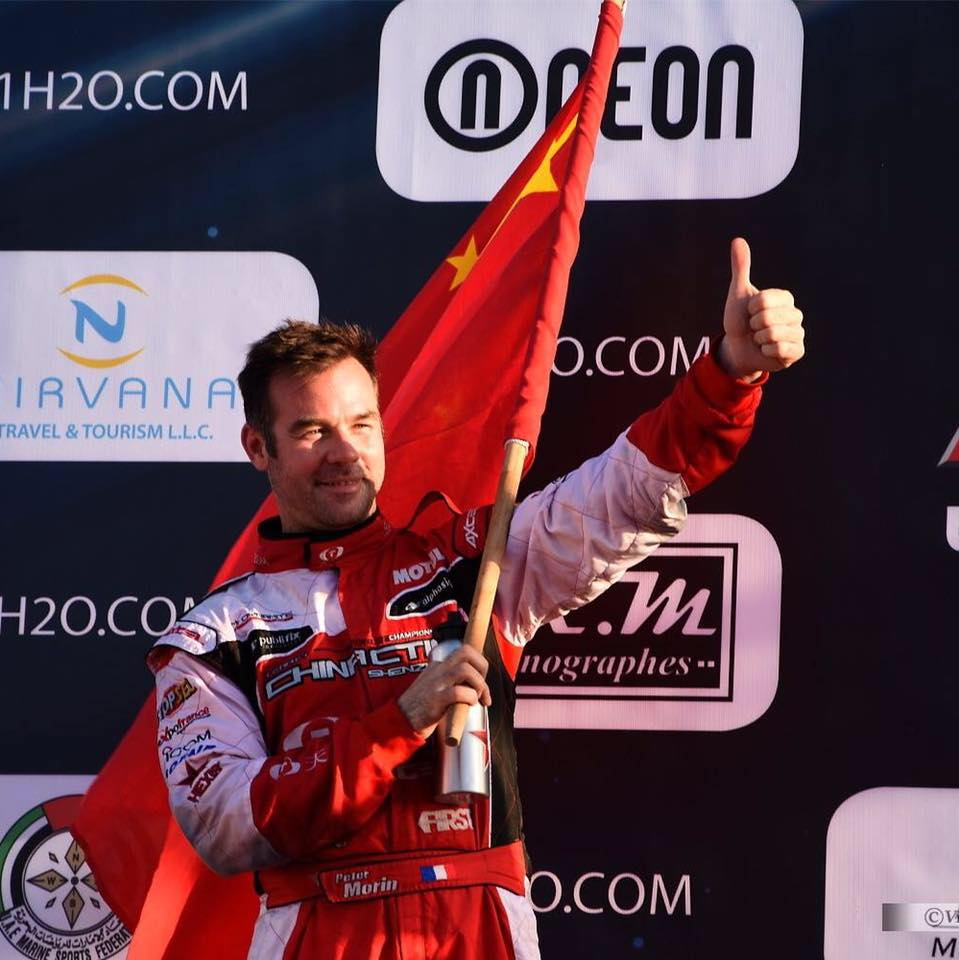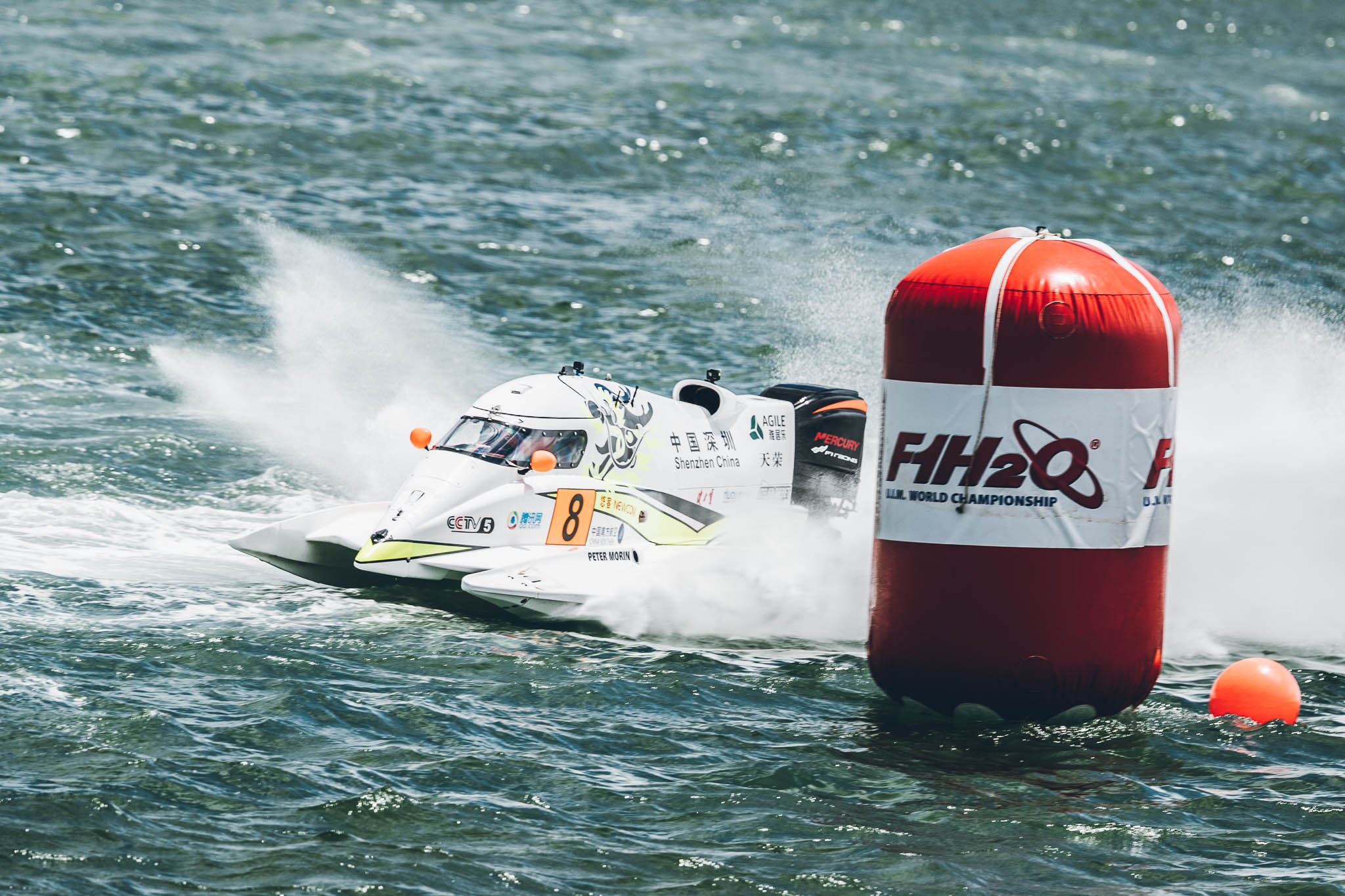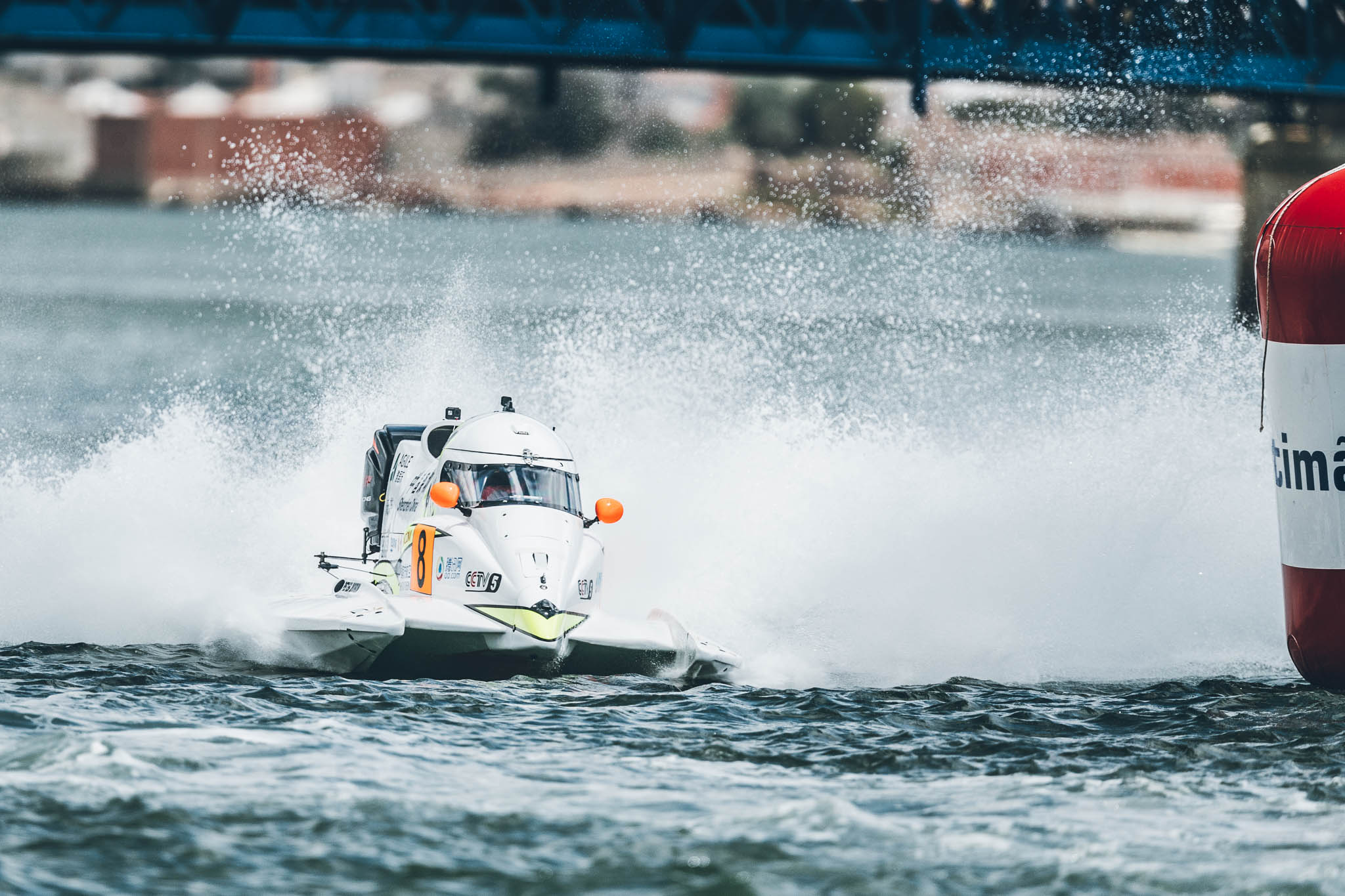ambassadors
Peter, racing on water is quite a niche sport. How did you find you way into powerboat racing?
Well, I was really lucky – I was born into a family that was already heavily involved in water sports. My father was racing powerboats for a very long time and competed in the 24h of Rouen many times. So I grew up with it. When I was a child and before I had my licence, I helped out fixing the race boats in my father-in-law’s garage and once I did get my licence I immediately started to race boats in the lower categories. Starting out is never easy, but it’s less of a challenge when powerboat racing is the family business and passion.

Racing powerboats is one thing, but actually racing at the highest level, in F1, is something else. How did you make it to this level?
As with most sports, you have a lot of lower categories and national championships. Here in Portimao you have the F4s that have joined us, but you also have F2 and endurance as well. I started out competing the junior categories and worked my way up. I was French champion a couple of times and I competed and won the 24h of Rouen five times. Then the moment came when both Philippe Dessertenne and Philippe Chiappe were looking for a new driver and they gave me the opportunity to prove myself at the highest level.
The track looks simple but I can imagine that when you’re racing at speed it’s quite a technical challenge. How hard is it to fight the elements like current and wind?
It’s really technical. The thing about racing boats is that they’re not actually floating in the water but skimming across the surface. Current isn’t really an issue but the wind is everything. That’s why we’re constantly trying to adjust the trim level and make sure the boat doesn’t catch a gust of wind in the wrong place, because that could actually flip the whole thing over. When you’re driving the boat, your backside the most important part of your body. You get all the feedback you need though your bum cheeks and spine, so that you know what to do.

It’s hard to tell from the shore. What speeds are you getting up to out here in Portugal?
During the race we’ll hit something around 170 and 180km/h which isn’t all that fast. But during qualification, with a low fuel load and a different propeller, we hit around 205 to 210km/h.
The F1H2O machinery that you race with has a closed cockpit. Do you stay high and dry in there?
(Laughs) No, not at all. This race I got really soaked right through to my briefs actually. The cockpit is closed but it’s nowhere near watertight. So every time you pass another boat and you get hit by their spray, it all comes straight into your lap.

Do you have a favourite track in the championship?
I really like Portimão. It’s a great place and I love the scenery here. It’s also one of the best places for spectators because they can line up all around the track if they choose to, on both sides of the water. Other than that I really love the Abu Dhabi event as well.

